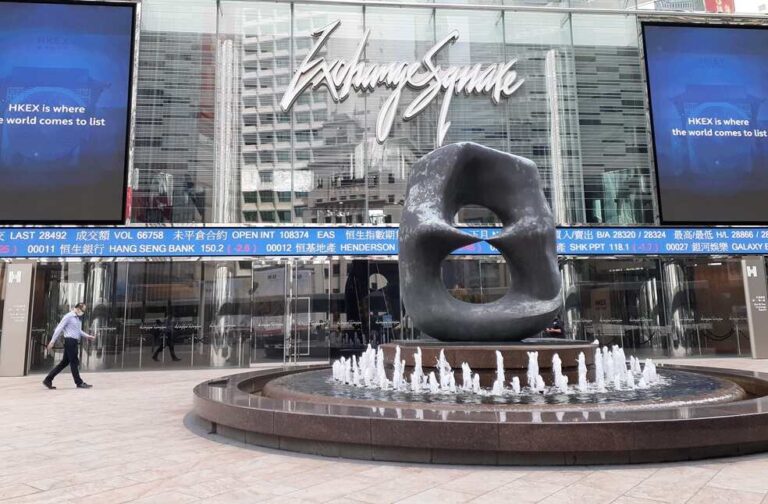Hong Kong: The stock exchange in Hong Kong will no longer be closed during typhoons and other severe weather, as it has done for decades.
According to John Lee, the chief executive of Hong Kong, the financial industry overwhelmingly backed the move, which would align the financial centre with other markets, particularly those in mainland China.
“Shenzhen and Shanghai are now trading in bad weather. There is no reason why Hong Kong, as an international financial centre, should not follow suit,” Lee told reporters at a news conference on Tuesday.
“Non-stop trading in inclement weather can strengthen the competitiveness of the Hong Kong Exchange,” he added.

Typhoons frequently hit Hong Kong between June and October, but officials have cautioned locals to expect stronger and more unpredictable storms in the future as a result of climate change.
For the 16th time since World War II, Hong Kong authorities issued the city’s highest weather alert, T10, for Super Typhoon Saola last year.
The Hong Kong Observatory notes that the 11 typhoons or stronger that occurred last year were less than the average of roughly 15 between 1961 and 2020.

In the wake of China’s sluggish economic growth and crackdowns on dissent, Hong Kong’s stock market has seen severe losses in recent years. As part of its handover from Britain, the semi-autonomous territory was granted privileges and freedoms not present on the Chinese mainland.
2023 saw a 13.8 percent decrease in the benchmark Hang Seng index, marking the fourth year in a row of declines.
The index has decreased by about 38% since 2019, despite gains in the US, Japanese, and Indian stock markets. Data from the World Federation of Exchanges shows that in January, India’s stock market surpassed Hong Kong to take the fourth place as the world’s largest equity market.



